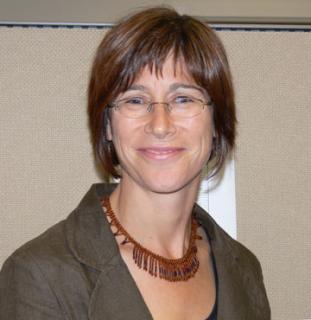In regard to national yearnings, peace is broadly defined as “the absence of war.” A “peacemaker” is one who makes peace, especially by reconciling parties at variance.
Neither peace nor peacemaking seemed to be the goal of a recent panel discussion about Israel. About 30 people gathered at the University of Wisconsin-Milwaukee on Oct. 7 to hear four speakers talk about “Apartheid in Israel” at the opening event of the U.S. Campaign BDS Campus Conference, held at the University of Wisconsin-Milwaukee.
The three-day conference was one of five such events held nationwide by the U.S. Campaign to End the Israeli Occupation with the goal of encouraging boycott, divestment and sanctions (BDS) against Israel.
Locally, it was sponsored by a variety of groups, including Peace Action Wisconsin, Iraq Vets Against the War and the tiny campus group, Milwaukee Jews for Justice, each of which claims an agenda of peace.
On the face of it, the U.S. Campaign supports positions that many Jews and Israelis would support — self-determination and equality for Palestinians. Unfortunately, that sympathy and commitment to human rights does not extend to Jews. The characters are a Grimm’s fantasy: Palestinians as powerless victims and Israelis as violent, aggressive, ill-intentioned oppressors.
Too many progressive groups involved with the Israeli-Palestinian conflict have adopted this jaundiced narrative and assumed a fighting stance rather than the nuance and openness required to make real progress. Their declared quest for peace and goodwill instead becomes a force for more conflict.
But peacemaking, I venture, requires listening to viewpoints of all sides in an attempt to understand and respect their needs. It requires seeing both persecutor and victim on both sides of the conflict.
Milwaukee attorney Othman Atta, who spoke on the panel, told a story about getting stopped at a security checkpoint on an attempted journey from the West Bank to Jerusalem during a visit last summer.
The Israeli soldiers were “so goddamned stupid that they couldn’t tell that my wife was American,” he said.
Not exactly language that is conducive to interfaith or inter-group dialogue, I’d say. Neither were statements by Janan Najeeb, president of the Milwaukee Muslim Women’s Coalition, during the question period: “The Jewish federation and PR people are constantly yapping” and are “apologists for Israeli terrorism”; “Checkpoints are really entrances to concentration camps”; and that the term “Jewish settlers” needs to be replaced with “Jewish terrorists.”
Bob Ashmore, Ph.D., of the American-Arab Anti-Discrimination Committee, clarified his support for a “one-state solution” this way:
“Israel should be destroyed as a Jewish state just as South Africa was destroyed as an apartheid state.”
Ashmore’s statement drew applause from the small group and stunned silence from the handful of Jews who attended the event.
After the event, Kathy Heilbronner, interim executive director of the Milwaukee Jewish Council for Community Relations, remarked, “Well, that was a non-starter.”
Not because criticism of Israel is off limits. Not because Palestinians don’t deserve equality, prosperity, justice and self-determination. Not because we can’t bear to hear difficult truths.
It was a non-starter because its tone and language are appropriate for rallying, not reconciling. Calling Israel an apartheid state and calling Gaza a “concentration camp” is about demonization, not peacemaking.
Though Milwaukee has not seen much of this type of activism, this approach to the Israeli-Palestinian conflict seems to be gaining momentum nationally. Ashmore believes that it is, as does UWM student Erik Sperling, a member of Jews for Justice.
But, said Ethan Felson, vice president of Jewish Council for Public Affairs, it hasn’t yet taken hold. “There have been efforts in Europe that have had more traction for this brand of activism … but, to date, thankfully, in North America, across the spectrum, people have recognized that it’s a strategy that is utterly unrelated to promoting peace.”
“This is the direction that the most vociferous critics of Israel have decided to take on. It hasn’t gotten traction and it can’t be allowed to get traction because it flies in the face of bringing peace to a land that desperately wants and needs it.”
That is the commitment that needs to underlie our interfaith and Israel-related work — not the false premise that the Israeli government is perfect and immune to criticism but that our goals must be constructive. Without a shared foundation of true goodwill, our conversations will all be non-starters, just like the apartheid panel. And what is to be gained by yet more furious indignation?
The key, Felson said, is relationships. When Muslims, Christians and Jews work together, listen to each other, they can no longer act recklessly without knowing that their actions may harm their friends/neighbors/colleagues. It’s that simple, even if the relationships themselves are complicated, fragile and difficult.
And that’s the bottom line: The conflict itself is complicated and difficult. Anybody who thinks it’s an easy issue of good guys versus bad guys is sorely uninformed and when it comes to making peace, utterly unhelpful.



